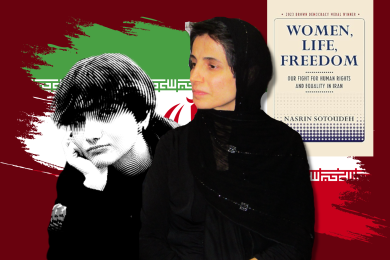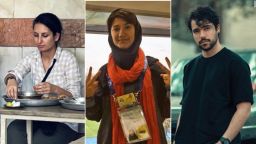From the streets of Tehran to digital platforms across the world, Iranian women are courageously fighting against one of the most repressive regimes in modern history. At the center of their struggle stands an oppressive force: the Islamic Revolutionary Guard Corps (IRGC)—the powerful arm of the Iranian regime responsible for brutally enforcing state control, particularly over women.
Despite systematic gender oppression, including forced hijab laws, imprisonment, torture, and surveillance, Iranian women continue to resist boldly. But what gives their fight more strength, visibility, and hope is global solidarity.
This article explores how international awareness, activism, diplomacy, and grassroots support can amplify the voices of Iranian women, put pressure on the regime, and foster global accountability in the fight for freedom.
1. Understanding the Struggles of Iranian Women
A. Legal and Social Discrimination
Iranian law institutionalizes gender-based inequality, treating women as second-class citizens in virtually every aspect of life:
• Compulsory hijab laws enforced by morality police.
• Lack of equal rights in marriage, divorce, child custody, and inheritance.
• Bans on women attending sports stadiums or pursuing certain careers.
• Harassment and imprisonment for peaceful protests and online activism.
B. Repression by the IRGC
The IRGC plays a central role in suppressing dissent:
• Directs arrests and interrogations of women activists and journalists.
• Oversees notorious prisons like Evin and Qarchak, where female detainees are tortured, sexually abused, and kept in inhumane conditions.
• Monitors and shuts down women-led social media campaigns.
• Labels feminist voices as “foreign agents” or “national security threats.”
Still, the spirit of resistance among Iranian women remains unshaken.
2. The Rise of “Women, Life, Freedom”
The death of Mahsa Amini in 2022—beaten to death by morality police for allegedly violating hijab laws—sparked a national uprising led by women and girls across Iran.
The protest chant “Zan, Zendegi, Azadi” (Women, Life, Freedom) became a global symbol of resistance. Iranian women tore off their headscarves, led marches, documented human rights abuses online, and inspired worldwide protests.
This movement made clear that the struggle for women’s rights in Iran is at the center of the country’s demand for democracy.
3. The Power of Global Solidarity
A. Why International Support Matters
Authoritarian regimes like Iran’s thrive in isolation. By silencing dissent and controlling the narrative, the regime minimizes accountability. This is where global solidarity becomes a game changer:
• Raises international pressure on the regime to stop human rights violations.
• Empowers Iranian women by amplifying their stories and demands.
• Forces policymakers to reconsider diplomatic, economic, and cultural ties with Iran.
• Helps break censorship, spreading the truth about what’s happening on the ground.
B. The Diaspora’s Role
The Iranian diaspora—millions of Iranians living in Europe, North America, and elsewhere—has been instrumental in:
• Organizing rallies in major cities like Berlin, Paris, Toronto, and Los Angeles.
• Launching petitions and campaigns to influence governments.
• Creating media platforms to report independently on Iran.
• Supporting families of prisoners and activists in exile.
These global efforts provide protection, publicity, and political leverage for those still resisting inside Iran.
4. Real-World Impact of Global Solidarity
A. International Protests and Visibility
• Millions participated in worldwide demonstrations following Mahsa Amini’s death, showing that the world was paying attention.
• Social media campaigns like #WomenLifeFreedom, #MahsaAmini, and #FreeIranianWomen went viral.
• Activists used global platforms like the United Nations, Nobel Peace Prize, and international media to highlight the cause.
B. Political Action and Sanctions
• The European Union, Canada, and the U.S. have imposed targeted sanctions on Iranian officials and IRGC members.
• Global calls for designating the IRGC as a terrorist organization have gained momentum.
• The UN Human Rights Council launched investigations into regime abuses, driven by international advocacy.
These actions increase the cost of repression for the regime and offer a layer of protection for vulnerable activists.
5. Voices of Courage Amplified by the World
A. Narges Mohammadi
Currently imprisoned, this Nobel Peace Prize winner continues to write from behind bars about torture and resistance. Her voice echoes globally thanks to widespread international support.
B. Masih Alinejad
An exiled journalist and activist, she uses platforms like Instagram and Twitter to connect with millions inside Iran. Her online campaigns have become a beacon for Iranian women—and a target for IRGC assassination plots.
C. Sepideh Gholian
After years of imprisonment and torture, she left prison only to return again for chanting slogans. Her bravery became international news thanks to journalists and human rights defenders worldwide.
These women’s stories show how amplifying voices leads to pressure on the regime and inspiration for others.
6. How Global Citizens Can Help
You don’t have to be a politician or journalist to support Iranian women. Here’s how everyday people around the world can make a difference:
A. Share Their Stories
Use your platforms—big or small—to amplify Iranian women’s voices. Even a single retweet or share can:
• Spread awareness.
• Counter regime propaganda.
• Help keep detainees safe by making their cases public.
B. Support Human Rights Organizations
Donate to or promote organizations working to:
• Support political prisoners.
• Document human rights abuses.
• Provide tools for digital security inside Iran.
C. Push for Political Pressure
Call on your representatives to:
• Support sanctions against IRGC officials.
• Pressure governments to cut ties with regime-controlled institutions.
• Grant asylum or refuge to at-risk Iranian activists and journalists.
D. Join or Organize Protests
Visibility matters. Global protests:
• Keep media attention on the issue.
• Build momentum.
• Remind Iranian women they are not alone.
7. The Risks of Silence
Failure to act enables further repression. When the world ignores women in Iran:
• The regime feels emboldened to escalate violence.
• Political prisoners suffer alone and unheard.
• Oppression becomes normalized.
History has shown that silence in the face of injustice is complicity. Supporting Iranian women is not just an act of compassion—it’s a moral responsibility.
8. Looking Forward: Women Will Lead the Way
Iranian women are not just resisting—they are reimagining their country’s future. A future where:
• Freedom of dress, speech, and life choices is respected.
• Gender equality is enshrined in law.
• Democracy and dignity replace fear and surveillance.
Their leadership is central not just to women’s rights—but to the liberation of Iran itself.
Conclusion
Global solidarity is not symbolic—it saves lives, strengthens movements, and holds regimes accountable. In the fight for a free Iran, Iranian women are leading with extraordinary courage. But they cannot—and should not—fight alone.
Join Our Newsletter!
Stay informed with the latest updates, news, and ways to take action in the fight for justice and global security. Sign up now to get updates delivered straight to your inbox!





